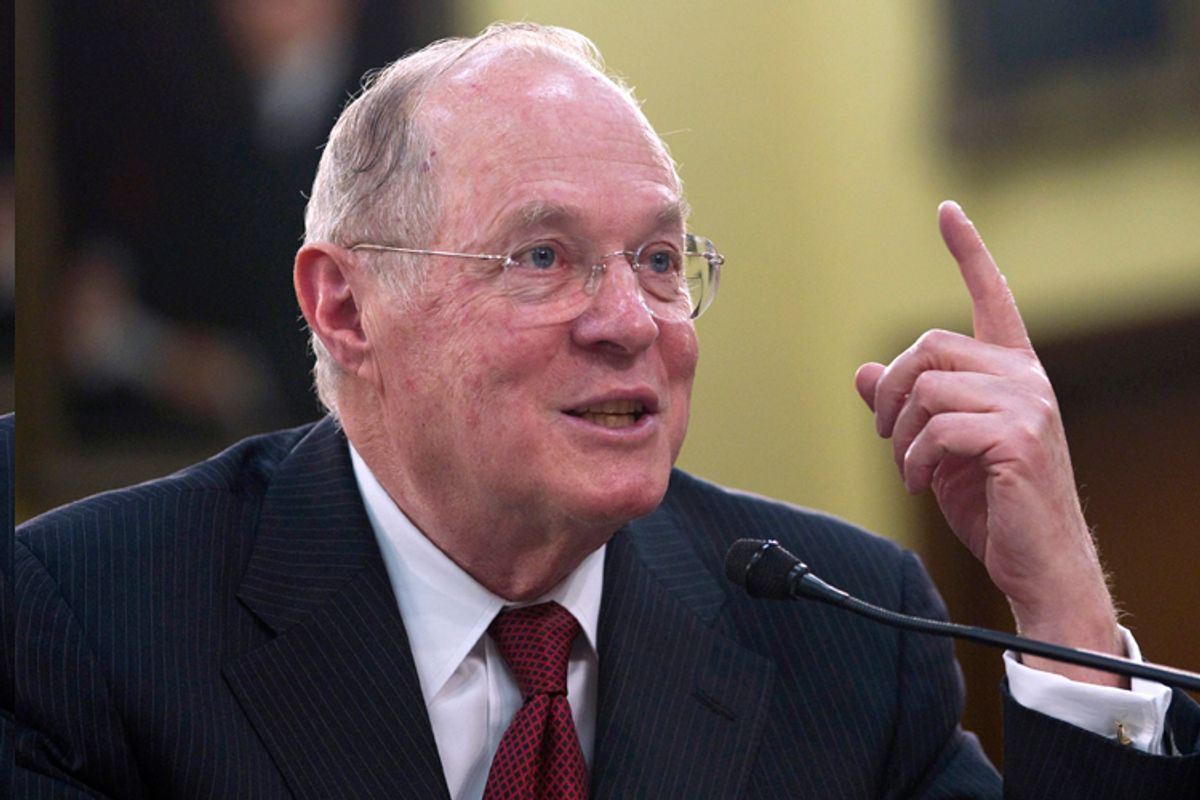Anthony Kennedy, the Supreme Court's swing justice, raised eyebrows on Wednesday morning with a statement that could signal trouble for the plaintiffs challenging federal insurance subsidies under the Affordable Care Act.
The plaintiffs in the case, King v. Burwell, assert that the health care reform law prohibits insurance subsidies to low- and middle-income consumers purchasing insurance on the federal Obamacare exchange; they've seized on language in the law that says subsidies are available to consumers shopping on an exchange "established by the state." Thirty six states did not establish their own exchanges under the law, leaving their residents to shop for plans on the federal exchange. Though Congress clearly intended for the subsidies to be available to federal exchange consumers, the fact that the nation's highest court agreed to hear the case worries Obamacare supporters.
But Kennedy -- who dissented from the Court's 2012 ruling upholding the constitutionality of the ACA's individual mandate -- may not be inclined to rule for the challengers. During oral arguments today, Kennedy indicated that he saw a "serious constitutional problem" with the claim that the law forced states to choose between establishing exchanges and surrendering subsidies. The Wall Street Journal reports that Kennedy continued to challenge Michael Carvin, the lawyer representing the plaintiffs, on key points of the challengers' case:
Justice Kennedy pressed Mr. Carvin on multiple occasions about whether the challengers’ reading of the subsidy provision of the health law would be problematic under the Supreme Court’s 2012 health-care ruling. There, the court struck down the ACA’s planned expansion of Medicaid,saying Congress put too much financial pressure on the states to accept the law’s plan to cover more low-income individuals under the government insurance program.
Justice Kennedy said that if Mr. Carvin is right and the insurance subsidy provision requires states to establish their own insurance exchanges in order to get federal subsidies, then that interpretation could raise the same concern about the federal government pressuring the states.

Shares